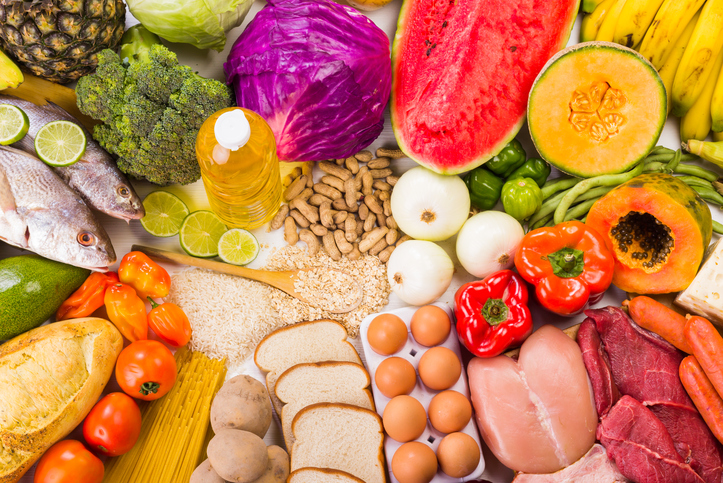What we eat impacts more than just our taste buds. In fact, what you eat could be contributing to the pain and discomfort you may be experiencing from TMJ/TMD. How? Well, some of the foods that we eat can cause inflammation, worsening the symptoms you may already have.
Food plays such a powerful role in how patients feel that as a practice, we go over a “deflaming” diet with patients at each visit as part of the nutrition piece of treatment. We base our recommendations off of The DeFlame Diet: DeFlame your diet, body, and mind by Dr. David Seaman. The goal is to help patients better understand how to reduce a chronic inflammatory state with diet and nutritional supplements such as cutting out sugars, trans fats, and flour and adding anti-inflammatory vegetables.
The following are five major inflammatory-inducing foods to steer clear from. Cut them out of your diet and see how much better you feel!
- Wheat isn’t what it’s always been. Modern-day wheat grows on plants that are 18 to 24 inches tall versus the 4.5-foot-tall plants in the past, which reduces the quality of the grain. Research has shown that consumption of modern wheat can trigger autoimmune diseases, such as diabetes, multiple sclerosis, and arthritis. In general, steer clear of breads, bagels, biscuits, etc. that contain refined flour – and sugar too, which is the next food on our list.
- Sugar isn’t man’s best friend. Added sugar is the worst ingredient in any diet. Sugar can increase insulin resistance in the body and may be linked to fatty liver as well as diabetes type 2. Perhaps the worst culprits are sugary drinks, which do not satiate because the brain doesn’t register it as food. Since the calories in these drinks are not compensated for by eating less food, then they add empty calories to the diet. Fruit juices contain antioxidants as well as vitamins, but they’re basically full of sugar, so drink sparingly. Sugar is also found in all junk good which tend to also contain cornstarch.
- Agave is also often considered to be a healthy alternative to sugar. However, it is very high in fructose, which is not good for you. Special note: Alternatives to sugar may include stevia, a sweetener without calories that has been used for medicinal purposes in South America, or Xylitol, a non-inflammatory sweetener that is as sweet as sugar with two-third of sugar’s calories. It reduces the risk of dental cavities.
- Refined vegetable oils are high in omega-6 fatty acid. These are sensitive to oxidation and cause increased oxidative stress in the body. They have been linked to an increased risk in cancer. As a rule, you want to avoid corn, safflower, soy and canola. Alternatives may be coconut oil, ghee butter, or extra virgin olive oil.
- Starchy Vegetables might be more trouble than you realize. Just because it’s labeled a vegetable, doesn’t mean it’s having the best impact on your body. When we are looking to eliminate food to address inflammation, the consumption of starchy vegetables like potatoes, carrots, peas and corn should be evaluated and possibly cut out. Thankfully there are so many other options for us to eat when it comes to vegetables and fruit, you’ll likely not miss the few that you may need to part with!
Learn more about how your diet could be contributing to your discomfort and how to change it by visiting my blog.
